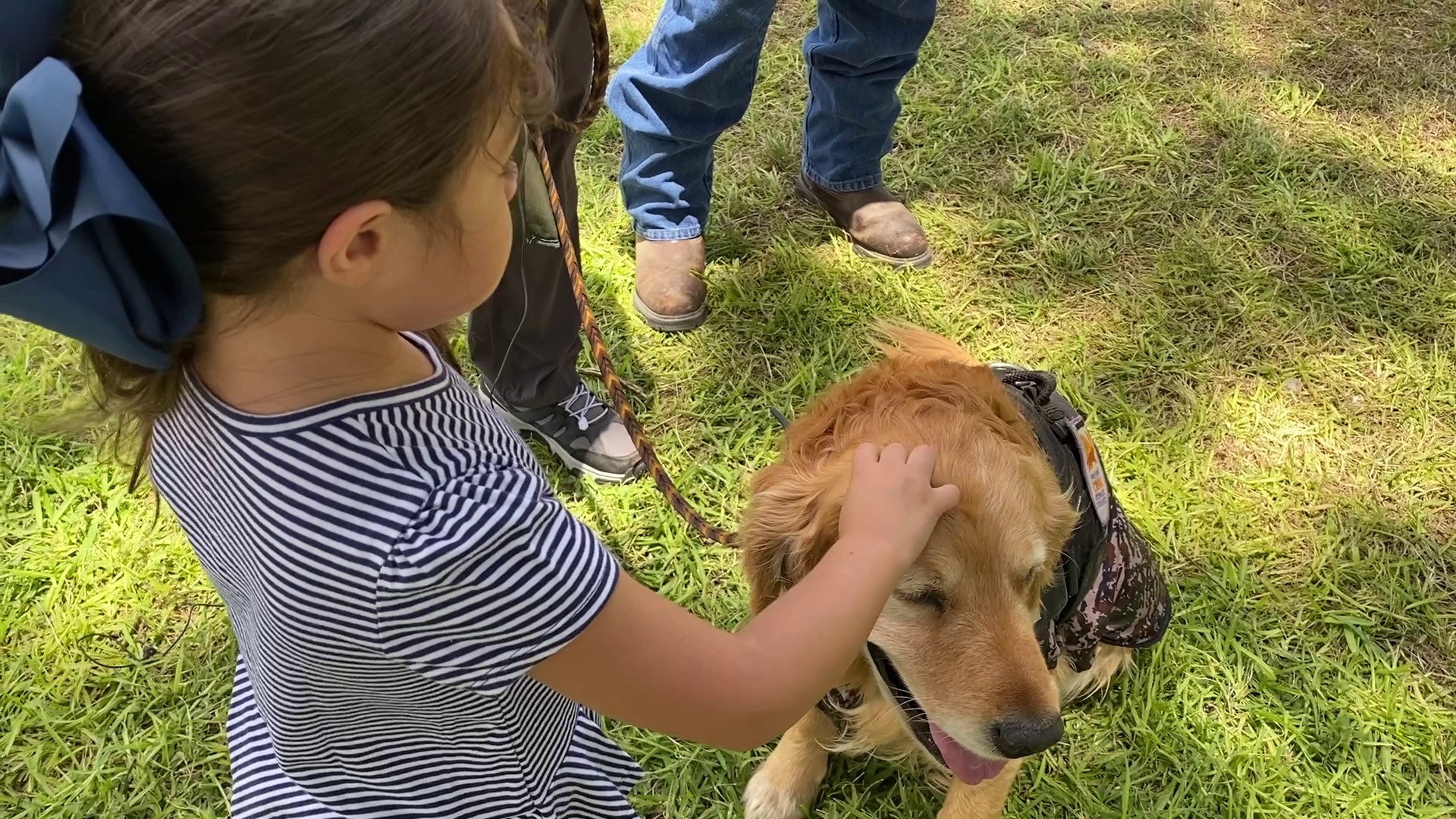UVALDE, Texas — Under a hot June sun, they are a source of relief. Not the shady coves created by the giant oak trees in Uvalde's town square, but the dogs walking through the crowd.
All little Mia Cruz sees is a 7-year-old golden retriever named Cooper. But Cooper is a National Crisis Response Canine.
"We use that human-canine bond to help break through and build resiliency in those affected by it," says Cooper's handler, Andy Garmezy.
"Sometimes an animal has more sense than a human," says Adolfo Cruz, Mia's grandfather.
He says he brought Mia to the town square to visit the cross of Eliahana Cruz-Torres. Adolfo's granddaughter. Mia's cousin.
"She’s doing alright," Adolfo says. "She’s too small to understand what’s happening."
Mia may be too small to understand, but not too small to feel what’s happening in Uvalde.
"The grief here is very palpable," says Janice Marut with Lutheran Church Charities. "It’s extensive because of the people who know people who are related to people. It’s a small community."
LCC's K-9 Comfort Dog Ministry is one of several volunteer groups helping the town heal. Some brought therapy dogs, while others brought trained crisis dogs.
"This is something we can do that does make a difference," says Linda Porter-Wenzlaff.
She spent last week in Uvalde as a volunteer with Therapy Animals of San Antonio's Crisis Animal Response (or CARE) program.
"You kind of see the whole gamut of human reaction," Porter-Wenzlaff says.
The dogs unlock that emotion, even if they may be too young to put it into words.
"Just, you know, process feelings, try to understand," she explains.
Sometimes it feels as if the dogs absorb our pain, our stress, our fear. Their handlers say that is a very real thing.
"They kind of help relieve that stress by taking it on themselves," Porter-Wenzlaff says. "The general rule of thumb is that a dog shouldn’t do this for more than an hour or two at a time in a 24-hour period."
RELATED: The roots of Uvalde
The handlers absorb a lot of it, too.
"It hits us at the end of the day because we’re trying to do our job. I’m trying to listen," Garmezy said.
Still, the volunteers are grateful for the opportunity to be able to serve when needed.
"We can be helpful in a time when it’s easy to feel helpless or hopeless," Porter-Wenzlaff said.
CARE will be back in Uvalde next week, working with Uvalde CISD as summer school starts up.
"We will be coming back and forth working with counselors and working with grief groups for however long they need us to be there," Porter-Wenzlaff said. "This community will need support for a long time."

